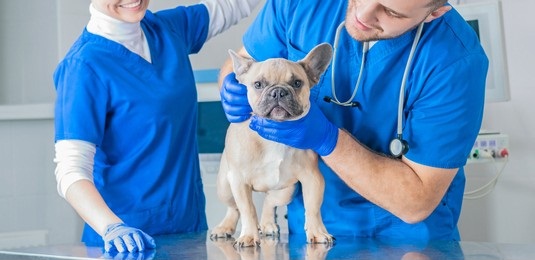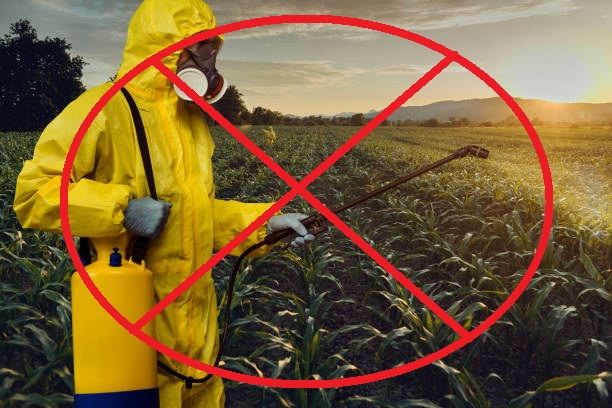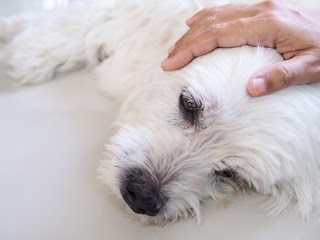What Is Preventive Care, And Why Is It So Important For My Dog?
What Does Dog Preventative Care Mean?
Preventative care for dogs refers to whatever we do medically to keep them healthy. Vaccinations, heartworm preventatives, and maybe flea control would be the most prevalent. It entails giving or administering items that will help to avoid illness in the future.
What are the preventative health care guidelines?
In order to preserve optimal health, a preventive health plan centres around frequently scheduled tests of a seemingly healthy dog. The American Animal Hospital Association (AAHA) and the American Veterinary Medical Association (AVMA) gathered medical information from various specialty groups (American Heartworm Society, American Association of Feline Practitioners, Companion Animal Parasite Council, to name a few) and devised guidelines focused on preventive health care for cats and dogs in order to standardise wellness plans.
What You Should Know About Dog Vaccinations ?
Vaccinations are a basic and crucial component of every preventative health care strategy. The vaccines we prescribe will protect your dog from illnesses that, while not prevalent, pose a severe risk to his or her health, lifespan, and quality of life. The fact that we have good vaccines to protect your dog and hopefully the rest of the dogs with whom your dog may come into contact is the only reason they aren't more frequent. We observe a return of these highly fatal illnesses when owners stop vaccination.
A vaccination regimen typically consists of a series of vaccines given to your puppy as a puppy, boosters at one year, and then frequent immunizations throughout your dog's lifespan.
Although the rabies vaccine is presently the sole immunisation needed by law in most jurisdictions, we strongly advise that your canine friend receives all of its core and non-core vaccines. As part of your dog's health programme, your veterinarian may help you select a vaccination plan depending on your dog's lifestyle, geographic region, and pre-existing medical issues.
What benefits will my dog and I gain from these guidelines?
In human health and dentistry, preventive care and early disease intervention are well-established and well-accepted advantages. Dogs are getting some of the same age-related diseases and problems that humans experience, such as osteoarthritis, diabetes, renal disease, and cancer, as they live longer.
The recommendations lay out a strategy for promoting preventive and early intervention, which can help dogs live longer and better lives in the long run.
Your veterinarian is an important part in keeping your dog healthy and happy. Part of his or her mission is to assist you realise the value of illness prevention or, at the very least, early detection, when diseases are more controllable. The recommendations lay out a clear and concise strategy for promoting preventive and early intervention, which can help dogs live longer and healthier lives.
Please review the brochure "Preventive Healthcare Guidelines for Dogs" to see these guidelines and understand how your veterinarian will use them during your dog's checkup.
Dog Dental Care
The dental health of your dog is crucial to his overall wellness. Dental illness is usually progressive, and dogs learn to living with mouth pain and do not exhibit indications of distress. It might be difficult for owners to recognise whether their dog is suffering from dental illness or discomfort. As a result, an oral examination is an important element of the physical examination. We will examine the teeth, tongue, and oral cavity during this portion of the examination. Unfortunately, most dogs develop periodontal disease by the age of three or four.
The following are some of the dental issues that may affect your dog:
- Malocclusion
- Tooth Loss/broken teeth
- Mouth Sores and Ulcers
- Gingivitis
- Periodontal Disease
This is why your dog's general health depends on regular and complete dental treatment. A complete dental cleaning should be left to your veterinarian every 6-12 months, however brushing may be done in the comfort of your own home on your canine pet. You may also assist your dog's dental health by giving him toys and treats that are designed to strengthen and/or clean his teeth and gums.
Scheduling An Appointment To Develop A Preventive Care Regimen For Your Dog
It's as simple as picking up the phone or filling out the contact form on our website to schedule an appointment to establish a preventative care routine for your dog. Our staff is here to make your visit to the veterinarian as painless as possible for you and as joyful as possible for your canine friend!
What Information Does My Veterinarian Need To Know About My Dog's Lifestyle Before Providing Preventative Care Recommendations?
Certain vaccines may be more common in dogs that are going to be outside and in those tough and rocky circumstances, such as a hunting dog. They'll also be swimming in water, perhaps exposing them to parasites that an indoor dog would never be exposed to. As a result, various vaccinations may be required depending on one's lifestyle. There are many various diets that follow the same principles. Dogs who are more active and athletic may require a higher protein, higher fat, and maybe a higher energy diet, if you will, than a dog who spends 24 hours a day on the couch. So it's a variety of stuff like that. It has to do with their lifestyles and where or what they are exposed to.
Because dogs are unable to communicate, vets are unable to inquire as to how they are feeling or what is upsetting them. In addition, dogs' natural survival instincts cause them to disguise diseases in order to avoid seeming weak or susceptible to predators. To keep dogs healthy, comprehensive physical examinations are essential. Blood and urine tests are required to complete the health picture because your doctor cannot see what is going on within a dog's body. These preventative medicine practises will help your dog live a longer, healthier life by detecting issues sooner, making treatment more successful and less expensive.
What Recommendations Will My Veterinarian Make When It Comes To My Dog's Preventative Care Plan?
Outdoor dogs, for lack of a better term, are more or less at danger, and may require a more complete immunisation regimen or additional medicines. Perhaps ear cleaners for dogs who swim frequently. They're more prone to ear infections, so we'd most likely send them with an ear cleaner to attempt to stay ahead of the game and avoid such problems.
Can I expect that every visit my dog has with my veterinarian will be the same?
For a variety of reasons, each visit will be unique. The medical community's expertise and understanding of illness prevalence and mechanisms is always growing. As new knowledge regarding keeping dogs healthy becomes available, the Canine Preventive Healthcare Guidelines will be amended and updated. Furthermore, veterinarians are aware that as dogs age, their demands alter and their chance of contracting numerous ailments rises. Puppies and young adults have various preventative healthcare needs, while elderly dogs have their own set of requirements.
The specifics of a dog's veterinarian appointments will vary from year to year, but the overall goal will stay the same: to maximise our canine friends' health, wellbeing, and quality of life!
What Is The Difference Between Insurance And A Wellness Plan?
Wellness plans, as the name indicates, cover wellness checkups. What exactly does that imply? This will cover things like basic immunizations and an annual physical examination. Dental operations are covered once a year by certain wellness plans, however pet insurance will cover all elements of medical care. As a result, if your dog suffers a catastrophic accident or develops a major sickness, insurance will pay for it, but a wellness plan will not.
Intestinal Parasites In Dogs
Intestinal parasites in dogs, usually referred to as "worms," are a prevalent problem in both young pups and older dogs. Worms can be transmitted to dogs in the following ways:
- Ingesting eggs (most commonly stepping in feces and licking paws later)
- Passed from the mother during gestation
- Consuming an intermediate host like a flea or a small animal
In addition, certain worms may infect people, making intestinal parasites a problem for both dogs and humans. Our veterinary staff can prescribe a parasite prevention regimen for your dog, as well as a treatment programme to combat any current infestation.
How To Protect Your Dog From Fleas And Ticks ?
Fleas and ticks may be a real pain for both your dog and your family. These bothersome insects irritate your dog and may spread sickness to you and your family. While these parasites are frequent, we want to make sure your pet never has to deal with the discomfort that fleas and ticks can cause. We can work with you to devise a plan to keep your pet and home free of infestation. We'll work with you to create a plan for your dog that takes into account the dog's lifestyle, as well as the number and type of dogs in the home. There are a plethora of flea and tick treatments available. They aren't all made equal, and some are ineffective, if not downright harmful.Our doctors and staff are well-versed on these parasites and the best ways to avoid them. Developing and managing the optimal flea and tick treatment plan for your dog is a part of the annual medical exam.
How To Protect Your Dog From Heartworm ?
Heartworm is another critical component of all dogs' preventive treatment. Heartworm is a condition that can be fatal, but it is also totally avoidable. Heartworms are transmitted to dogs by mosquito bites. Mosquitoes are prevalent in California during the spring, summer, and early fall months, and they may even survive inside during the winter. As a result, we advocate for prevention throughout the year.
There are a handful of very effective medicines that are widely utilised in the veterinary sector. We'll help you figure out which product is the safest, cheapest, and most effective for you and your dog.
How Can I Keep My Dog Safe While In A Car ?
So the first, and most essential, step is to keep them contained. There are still a lot of dogs in the backs of vehicles. Obviously, this is not the most secure approach. And, regardless matter how well-trained your dog is, putting them in a cage is the best option if they're going to be in the back of a truck. I'd even take it a step farther and secure that kennel.A kennel is still the best solution for pets who ride indoors. If you don't like or feel comfortable with that, there are numerous harnesses that can be attached to your car's seat belts to prevent your dog from flying around the cab in the event of an accident or when you need to stop quickly.
Why Should I Keep My Dog On A Leash When In Public?
Because few dogs listen well enough when they're not on a leash. And there's always the possibility that you'll need to keep control of your dog in an emergency. You have no means of stopping them if they notice another animal, such as a squirrel, and they want to run without a leash. You obviously do with a leash. There's also a safety rationale for the human side of things. There are some people who are afraid of dogs. For all of these reasons, a dog might be too much for little children. It's only that using a leash is basically the only method to keep your dog sufficiently and properly confined or restrained.
What Can I Do To Keep My House And Yard Pet Safe?
It is determined by the dog. I own a pair of dachshunds. What am I attempting to accomplish? To avoid harm, I attempt to keep kids from leaping on and off of things. So, first and foremost, consider the dog's size and where they will be staying. So, if you need to install ramps or ladders up to your bed or couch or anything similar, think about it. Second, ensure sure kids can't get to locations where chemicals, garbage, or other potentially hazardous materials are present.
So, if you have a digger or a curious dog, make sure they can't get to all the cleaning products or garbage can beneath your kitchen sink, because it can only lead to disaster, as you can guess. Last but not least, there are outside dogs. If your dog is kenneled or housed outside, make sure they have enough shade, water, and ventilation. And if they're loose in a yard, for example, you'll want to double-check the fence's integrity—make sure there are no gaps and no places where they may get through, for obvious reasons.
What Pesticides Are Harmful To My Dog?
The most common things are pesticides, such as rat poison, which are extremely harmful to dogs. They produce two or three distinct kinds of rat poison, each of which can damage a variety of systems. That's all we have time for right now. This is the most prevalent form, and avoiding it is the best method to avoid it. Don't use it if you don't need it. If you must use it, place it somewhere where the rat or mouse but not your dog may get it. That's the most terrifying one that comes to mind, although exterminators employ a variety of chemicals.
I'd suggest speaking with your exterminator to find out exactly what they're using and what measures you should take. Even if you are unable to do so, I can assure you that most exterminators are aware that we live in a world where domestic pets abound. So, while most items are pet-safe, I would still exercise caution. Inquire with your exterminator, and if they do spray, allow enough time for it to dry fully before allowing your dog back in. If it's wet, it'll be more concentrated and potentially poisonous, so you don't want a dog back there sniffing around for puddles or licking the grass.
What Are The Most Common Dog Health Conditions That Can Be Prevented With A Good Wellness Plan?
To be honest, I believe that preventing illnesses is difficult. The true value of a wellness plan, in my opinion, is catching them as soon as they appear or begin to develop, because you'll be much more effective in treating a disease if you detect it at step one rather than step ten. As a result, you and your veterinarian should examine for lumps and bumps, as well as possible arthritis, in your dog on a regular basis. Again, it would be difficult to address all the issues that we could encounter. But I believe that early detection and regular wellness checkups are the most important factors.
What Goes Into A Dog Health Preventive Care Regimen ?
At Prestige Animal Hospital, we think that the simplest and most efficient approach to keep your dog healthy and happy is to follow a solid preventative health care programme. Many canine illnesses are readily avoidable, and the majority of them may be properly treated and healed if caught early. Many diseases, on the other hand, may soon become difficult and expensive to cure, and in some cases incurable, if they are allowed to develop and spread uncontrolled. As a result, we highly advise every dog owner to take preventative care seriously.
Our comprehensive dog wellness programmes usually include the following:
- Exams for your health every two years. Remember that pets live for seven to 10 years, so skipping a year without seeing a vet is equivalent to going seven years without seeing a doctor.
- Examination of your pet's whole body, including but not limited to the oral/dental, aural/ear, ocular/eye, musculoskeletal, neurologic, lymphatic, urogential, abdominal, heart/lungs, dermatological/skin, and accessory systems.
- Our team can educate you about diet, health, behaviour, medical, and surgical concerns, as well as provide you with a variety of resources (ie doctors, techs, handouts and information available here on our website)
- Weight loss, nutrition, dental care, behaviour, and other things you may accomplish at home
- Vaccination, diagnostics, and other preventative care suggestions depending on the lifestyle of your pet.
- Also, on our services page, you may learn about our wellness plan programme, which offers a reasonable monthly payment option for providing your pet with the best preventative care.
Our objective is to work with you to ensure that your dog's health is at its best. For many years to come, a healthy and happy canine friend will be a devoted and loving member of your family.
How Does Preventative Care Help My Dog?
For obvious reasons, if we're avoiding infectious illnesses, such as rabies, we administer a rabies vaccination to the dog. That's really beneficial. But also parvovirus, distemper, and hepatitis, as well as the other components in these combination vaccinations. That's a major problem, heartworm illness. It's particularly widespread in South Louisiana, where we practise. So, what can we do to avoid it? We keep it at bay by taking heartworm medication on a monthly basis. There's just one way to go about it.
How Often Should My Dog Be Seen For Preventative Care?
At the very least, once a year, but more practically, twice a year is probably a better plan to stick to because the dog... they grow and change so quickly, much faster than we do. Seeing an animal twice a year will offer you a greater chance to see changes as they occur, rather than waiting until they've been there for six, nine, or even a year.
What is Your Dog's Annual Physical Exam Like ?
Getting involved in a canine health programme starts with regular visits to the veterinarian for physical checks. The physical examination is a thorough examination of your dog's health. Because your dog is unable to communicate, we rely on the owners to supply us with vital information that will assist us in determining your dog's health. Our veterinarians will ask you specific questions, and your responses will lead the examination in order to assess general health and detect growing health concerns that would otherwise go unreported. Some dogs require annual physical examinations, while others require semi-annual examinations, depending on their age, health state, and pre-existing problems (every six months).Various areas of your dog's health will be reviewed by your veterinarian during the physical exam, including:
- Vaccination Status
- Parasite Control
- Dental Health
- Exercise
- A complete physical exam from nose to toes
- Behavior
- Xrays - primarily for older dogs
Following the physical examination, our veterinarian will discuss their findings with you and advise you on what, if anything, needs to be done to keep your dog healthy.
What Will My Veterinarian Do During A Dog Preventative Care Appointment?
It'll be a lot of the routines during your typical preventative care session, so we'll test the dog for heartworms. To check for intestinal worms, we'll take a stool sample. We provide an excellent head-to-toe physical examination. To avoid any illnesses, we will provide vaccines.
It also allows us to perform what is known as wellness blood work. We usually do a CBC and perhaps a chemical panel there. A thyroid panel may be ordered for some of our elderly patients. But it's before there's an issue, so we're looking for signs of perhaps poor renal function, or signs of anything that's impacting the liver, or electrolytes or blood sugar...those sorts of things. That's why it's referred to as wellness blood work. There isn't an issue there right now, but it allows us to peek behind the curtain to observe what's going on behind the surface.
What Kind Of Medication Does My Dog Need Monthly?
My first, second, third, fourth, and fifth answers to that question are monthly preventative medicine and heartworm prevention in South Louisiana. Heartworms are everywhere. Mosquitoes are the vectors of transmission. If you have a dog, you must use a heartworm preventive. This is true anywhere, but especially in the southern half to two-thirds of the United States. It's all over the place. It would also be ridiculous not to have them on heartworm preventatives.
Other things that may or may not be required depending on where your dog lives and their lifestyle, but flea and tick preventatives might be considered monthly preventatives as well.
Pain Management
- Medication
- Complementary Treatments
- Acupuncture
- Laser Therapy
- Massage
- Lifestyle Recommendations
- Raised Food Bowls
- Softer Bedding
- More Exercise











